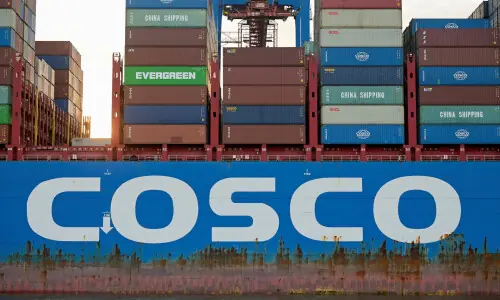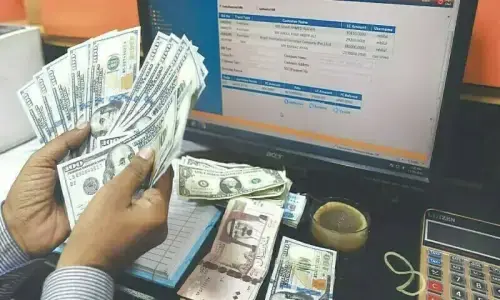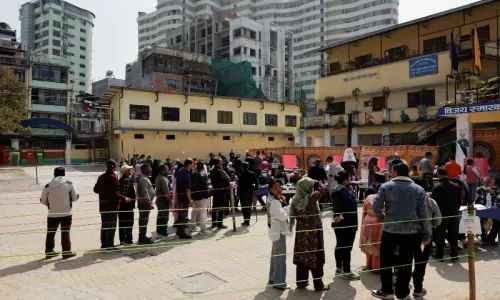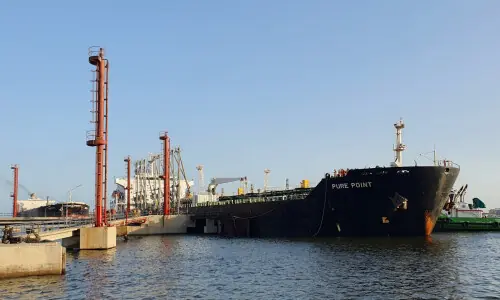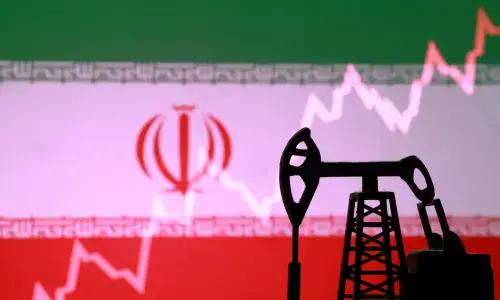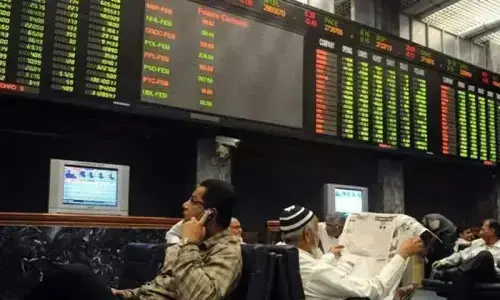A year of two ago, at a seminar on "Retail investor base in Pakistan stock market", Mr.Mudassar Malik, Director with BMA Capital Management, reading out his paper, identified total number of small investors in stocks to be around 40,000.
The flamboyant chairman of Securities and Exchange Commission of Pakistan (SECP) Khalid Mirza, who was present on the occasion, shook his head but did not venture to put forth his figure.
Mirza, arguably the most competent chief that SECP has ever produced, may have thought the number of retail investors to be twice of that which was being projected, but no more.
It is the bull run that the Karachi Stock Market has witnessed since the end of 2001, which has pushed forward the number of small investors to a phenomenal level. And much of that has to do with big gains made by the public in putting their faith and money in Initial Public Offerings (IPOs).
There has been overwhelming small investor response particularly in the shares divested by the Government from its majority holdings in state-owned entities. The interest having invigorated by more than 100 per cent gain made by those who opted to subscribe to the Oil and Gas Development Company (OGDC) IPO issued in November; the stock offered at Rs 32 quickly climbed to Rs 70, bringing enormous gains to the public.
Going by the last IPO floated by Bank Al-Falah, small investors in equities could have soared ten times in two years, since as many as 380,000 applicants subscribed Rs 11.8 billion to the Al-Falah offer. And fiscal year 2004 was also a record year for equity IPOs.
"13 stock offerings were brought to the market in the year ended June 30, 2004, which is the highest number of stock IPOs in a fiscal year since 1996", says Khalid Iqbal Siddiqui, analyst at stock brokerage firm, Invest Cap.
Out of those 13, 10 were new listings, while three were additional offer of shares from already stock market listed securities. About a half of the IPOs floated during 1994 were green-field projects.
All IPOs combined raised sum of Rs14.1 billion during the year and all but two of the 13 IPOs stood under subscibed. It is the ample liquidity that is driving the market and the point is proved by the colossal sum of Rs62 billion that the companies received against their offer of Rs16 billion worth of equities.
Privatisation Commission could not have been better timed. And Government got to be the gainer. Against its target of Rs 11.5 billion, the PC received Rs 62.2 billion in subscription.
The fact of the boom in IPOs is confirmed by the recently released third-quarter report of the State Bank of Pakistan, which says: "The increase in investor confidence and market depth is also reflected in the shape of 10 flotations (including 3 mutual funds) during Jan-May 2004, compared to 13 in the preceding three year", and the Central Bank adds:
"Importantly, most of the public offerings were heavily oversubscribed". Twelve of the latest equity flotations listed by the SBP in the third-quarter report include: Ittehad Chemicals Limited; TRG Pakistan; PICT; NBP (3rd offer); Oil and Gas Development Corporation; World Call Broadband; Sui Southern Gas Company; Macpak Films Ltd; Call mate Telips; Southern Networks Ltd; Bank Alfalah and PIA.
The equity offerings have changed places with Term Finance Certificates (TFCs). Only one TFC, that of Union Bank worth Rs 750 million was issued in the first half of 2004, compared with 17 TFCs listed in 2002 and 15 in 2003.
SBP acknowledges the inactivity witnessed in the Corporate Bond Market. In its third- quarter 2004 report, SBP notes: "During Jan-April 2004 period only one issue of Rs 0.8 million was made, compared with seven issues worth Rs 2.7 billion during third-quarter of fiscal 2003, which was one of the largest issuance (of corporate bonds) during a quarter".
The Central bank observes that the lower activity in corporate debt market largely reflected the availability of cheaper finance from commercial banks. On the equity IPO front, the standard set by Bank Alfalah, in attracting 380,000 applicants-the largest for any equity offering so far-looks about to be surpassed.
In the upcoming offer of 102.9 million shares (15 per cent) in Pakistan Petroleum Limited (PPL) at Rs 55 per share, which the Privatisation Commission opens for public subscription between July 19-22, the number of small applicants could cross 500,000.
Since PC has already announced priority to investors in the minimum lot of 500 shares, as many as 205,751 small applicants are likely to succeed at the balloting, in case more than the required number of applications are received.
A little while ago, everyone was taken by surprise when the share in Pakistan Petroleum Limited (PPL) opened on the provisional counter, at Rs 103 and climbed as high as Rs 116.50. The best of market pundits had put their reputation on an opening price of Rs 70.
The stock is still hovering around the price of Rs 105. The OGDC share offered in November 2003 at Rs 32 per share had started the first day at Rs 34.40, got to a high of Rs Keeping the high market price aside, in terms of different valuation techniques, most analysts believe the upcoming PPL offer price of Rs 55, to have been fairly valued by the Privatisation Commission.


